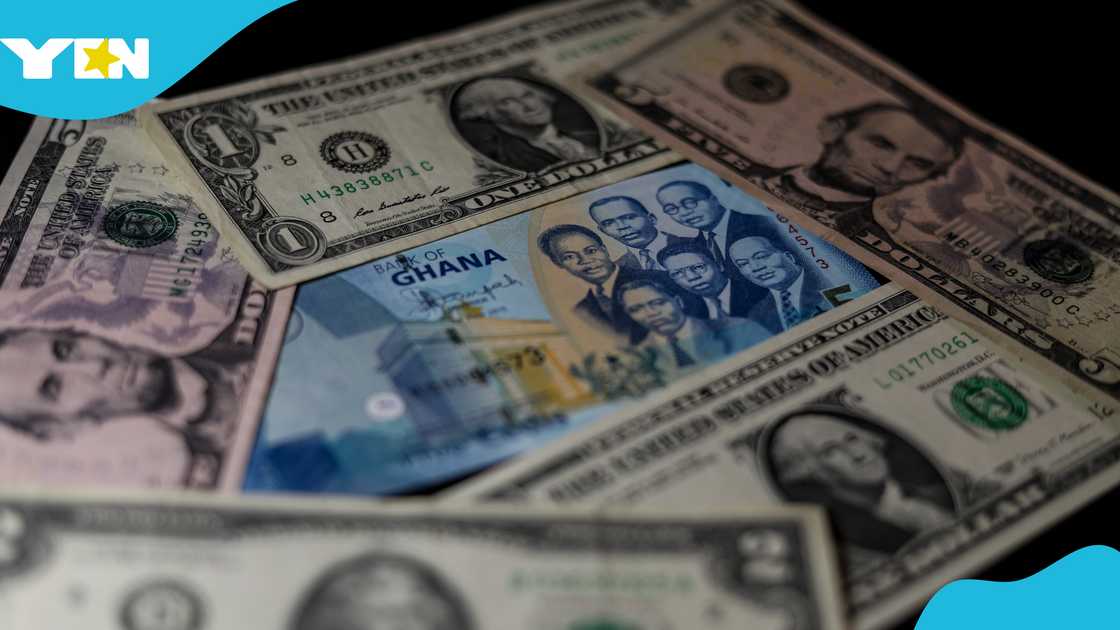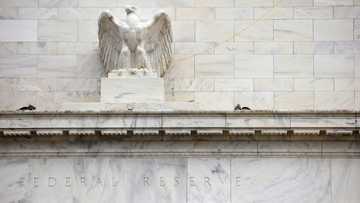Samuel Asiamah, a forex analyst, gives insight that could help people looking to navigate the forex volatility as the cedi continues its strong year
Ghana’s cedi is expected to extend its recent rally against the dollar, backed by forex inflows and continued Bank of Ghana intervention.
The cedi is trading at about GH¢10.70 to the dollar as compared to GH¢12.30 last week.

Source: Getty Images
Samuel Asiamah, a forex analyst, expects these fluctuations to continue. This moderate volatility is the new normal, he said.
Asiamah explained that Ghana’s exchange rate now operates in a managed float system and the Bank of Ghana steps in only to smooth extremes, not to fix a stable rate.
The central bank’s ability to intervene has improved through International Monetary Fund-backed reserves, but those funds are limited and tied to conditions, noted the analyst.
Databank Research earlier noted that the Bank of Ghana’s plan to double the frequency of its foreign exchange interventions through open auctions with licensed banks enhanced market flexibility.
Speculation is not going anywhere because though Inflation is down, it is still high in real terms, he added.
Ultimately, Asiamah said fiscal uncertainty ahead of the 2028 elections will sustain short-term exchange rate swings.
“The era of a flat cedi is over. The market will stay flexible with short bursts of appreciation and correction, driven by seasonal dollar flows and limited central bank firepower.”
Why hoarding the dollar is riskier
The practice of hoarding dollars to guard against inflation and protect, purchasing power is now riskier.
Asiamah explained that the cedi’s fair value has adjusted closer to equilibrium, so big profits from dollar hoarding are shrinking.
“The Bank of Ghana has stronger oversight of forex transactions and can inject liquidity quickly when speculation builds.”
In addition, global dollar strength has slowed, reducing gains for those holding dollars locally.
Holding dollars in cash also carries higher security and inflation risks within Ghana because policy signals and IMF discipline make sudden depreciation less likely than before.
For example, Ghana’s small-scale gold export sector has generated over $8 billion in foreign exchange so far in 2025 on the back of the introduction of the Gold Board.
The strengthening comes as gold prices skyrocket beyond the US$4,000 per ounce mark.
This notwithstanding, hoarding may still pay off briefly during peak import seasons, but not as a long-term strategy, said Asiamah.
Ultimately, he said the cedi is entering a new phase of managed volatility.
“Traders and businesses must adapt to quicker swings, but betting against the currency has become far less rewarding as the central bank learns to intervene faster and smarter.”
What has the central bank said about cedi trend
Speaking during the IMF/World Bank Spring Meetings, Governor of the Bank of Ghana Dr Johnson Asiama, said Ghana’s foreign exchange market has regained its stability, with commercial banks now driving trade rather than the central bank.
He said the interventions by the Bank of Ghana were temporary measures to cushion the market during a period of heavy outflows and lumpy payments.
He explained that between the second and third quarters, the central bank had to meet large financial obligations, including billions of dollars in arrears owed to Independent Power Producers.
The period also saw some domestic debt exchange bondholders deciding to exit their investments following the appreciation of the cedi.
Source: YEN.com.gh
Source: Yen.com.gh













